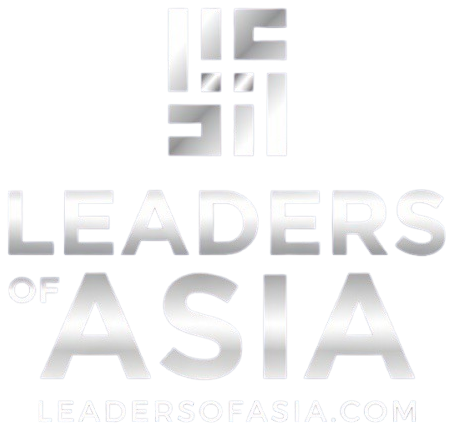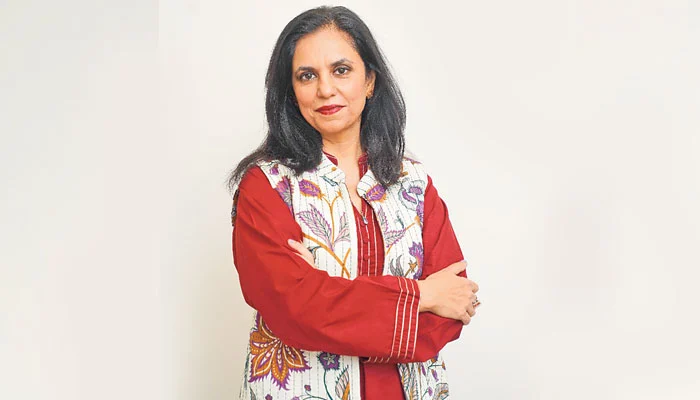Introduction
Roshaneh Zafar stands as a beacon of transformative change in Pakistan’s socio-economic landscape, particularly in championing women’s financial inclusion and empowerment. Her visionary leadership has not only redefined microfinance in the country but has also inspired countless women to break free from the shackles of poverty and societal constraints.
Early Life and Education
Born into a family deeply rooted in public service and the arts, Zafar’s upbringing in Lahore was marked by a blend of intellectual rigor and cultural richness. Her father, S. M. Zafar, was a prominent lawyer and politician, while her grandmother, Malika Pukhraj, was a celebrated classical singer. This unique familial backdrop instilled in her a profound sense of purpose and a commitment to societal betterment.
Zafar pursued her undergraduate studies at the Wharton School of the University of Pennsylvania, earning a degree in Finance and Economics. She furthered her academic journey with a Master’s in Development Economics from Yale University. These academic pursuits equipped her with a robust understanding of economic systems and development paradigms, laying the groundwork for her future endeavors in microfinance and social entrepreneurship.
One of Roshaneh Zafar’s most enduring contributions is her commitment to empowering women economically. When she founded the Kashf Foundation in 1996, the idea of women accessing formal financial services in Pakistan was still novel and, to some, even controversial. Zafar’s bold vision broke barriers by offering microfinance loans tailored specifically for women—many of whom had never managed money or participated in economic decisions before. Over the decades, Kashf has served millions of women, enabling them to launch small businesses, invest in education, and contribute actively to household incomes. This economic inclusion has had ripple effects, uplifting entire families and communities.
Empowering Women through Financial Inclusion
Unlike traditional microfinance institutions that focus solely on financial transactions, Zafar envisioned a more holistic support structure. Under her leadership, Kashf expanded its services to include financial literacy training, business development, and social insurance products. By addressing the broader needs of women entrepreneurs—including risk mitigation, planning skills, and market access—Zafar ensured that microloans translated into lasting, sustainable progress. Her model demonstrated that empowering the poor requires more than credit; it demands education, support, and systemic change.
Recognizing the pervasive influence of television in Pakistan, she collaborated with major broadcasters to produce critically acclaimed drama serials like “Rehaii” and “Udaari”. These shows addressed sensitive topics such as child marriage, domestic violence, and child abuse—issues often considered taboo in conservative societies. By weaving these narratives into popular entertainment, Zafar opened up public dialogue, raised awareness, and challenged long-standing norms. Her use of storytelling as advocacy added a new dimension to her social entrepreneurship, demonstrating how culture and media can be powerful vehicles for change.
She has been awarded the Tamgha-e-Imtiaz, Skoll Award for Social Entrepreneurship, and the Vital Voices Economic Empowerment Award. She has served on prestigious international platforms including the World Economic Forum, UN advisory boards, and development finance organizations. These positions have enabled her to influence global policies on inclusive finance, gender parity, and social enterprise, and to bring Pakistan’s development challenges and innovations into global focus. Her voice carries authority not just because of her accolades, but because of her on-the-ground experience and tested success.
Professional Genesis and Inspiration
What makes Roshaneh Zafar’s impact truly profound is its multi-dimensionality. She has not only redefined how microfinance can work in emerging markets, but she has also reimagined how women can be catalysts for economic and social progress. Through an integrated approach that blends finance, education, advocacy, and policy influence, Zafar has set a benchmark for future social entrepreneurs. Her work has contributed to transforming societal attitudes toward women, altering the development landscape of Pakistan, and inspiring a global movement toward inclusive economic empowerment.
Upon returning to Pakistan, Zafar joined the World Bank’s Islamabad office, working in the water and sanitation sectors. However, her trajectory shifted dramatically after an encounter with Nobel Laureate Muhammad Yunus, the founder of Grameen Bank. Inspired by his pioneering work in microfinance, Zafar immersed herself in understanding the Grameen model, recognizing its potential to uplift marginalized communities, especially women.
Founding of Kashf Foundation
In 1996, driven by a vision to empower low-income women through financial services, Zafar established the Kashf Foundation in Lahore. As Pakistan’s first specialized microfinance institution, Kashf aimed to provide women with access to credit, enabling them to initiate and expand small businesses. The foundation’s approach was holistic, combining financial services with capacity-building programs, financial literacy training, and social advocacy.
Under Zafar’s stewardship, Kashf experienced exponential growth. By 2023, the foundation had disbursed over 6.6 million loans, amounting to more than PKR 223 billion, benefiting over 700,000 active female clients across Pakistan. Beyond microcredit, Kashf introduced micro-insurance products, savings programs, and financial management training, addressing the multifaceted needs of its clientele.
Innovations and Media Engagement
Recognizing the power of media in shaping societal narratives, Zafar ventured into television production to address pressing social issues. Collaborating with prominent media houses, Kashf produced drama serials like “Rehaii” and “Udaari,” which tackled subjects such as child marriage and sexual abuse. These productions not only garnered critical acclaim but also sparked nationwide conversations, challenging entrenched norms and advocating for women’s rights.
Awards and Recognitions
Zafar’s groundbreaking work has earned her numerous accolades, both nationally and internationally. In 2007, she was honored with the Tamgha-e-Imtiaz, one of Pakistan’s highest civilian awards, in recognition of her contributions to women’s empowerment. The same year, she received the Skoll Award for Social Entrepreneurship. In 2010, Vital Voices recognized her with the Economic Empowerment Award. Additionally, she has been acknowledged as an Ashoka Fellow and a Schwab Foundation Social Entrepreneur.
Global Engagement and Thought Leadership
Beyond her work with Kashf, Zafar has played a pivotal role on the global stage. She has served on the World Economic Forum’s Global Agenda Councils, focusing on gender parity and Pakistan’s development. Her expertise has also been sought by the United Nations, where she contributed to the Advisors Group on Inclusive Financial Sectors. Through these platforms, Zafar has advocated for policies and initiatives that promote financial inclusion and gender equality worldwide.
Legacy and Impact
Roshaneh Zafar’s journey epitomizes the transformative power of vision, resilience, and unwavering commitment to social justice. Through Kashf Foundation, she has not only provided financial services to millions but has also catalyzed a broader movement towards women’s empowerment in Pakistan. Her multifaceted approach—integrating finance, education, and media—serves as a model for holistic development.
In a society where women have historically faced systemic barriers, Zafar’s work has illuminated a path toward inclusivity and equity. Her legacy is not just in the institutions she has built but in the countless lives she has touched, inspiring a new generation to envision and work towards a more just and equitable world.
Roshaneh Zafar’s legacy is one of vision, resilience, and unwavering dedication to the empowerment of women and marginalized communities in Pakistan. Through the founding of the Kashf Foundation, she not only revolutionized access to microfinance for women but also redefined how financial inclusion can be used as a tool for sustainable development. Her approach—grounded in dignity, social equity, and economic opportunity—has enabled millions of women to become financially independent, support their families, and transform their communities.
Conclusion
Zafar’s influence extends beyond finance; her innovative use of media to challenge harmful social norms and advocate for gender rights has reshaped public discourse around sensitive issues like child marriage and domestic abuse. By combining entrepreneurship, advocacy, and storytelling, she has created a holistic model for social change that is both scalable and replicable.
Internationally recognized and deeply respected, Roshaneh Zafar’s contributions have placed her among the foremost champions of women’s empowerment in the Global South. Her continued leadership in global forums and commitment to inclusive development ensure that her impact will resonate for generations. In a world still grappling with gender inequality, Zafar stands as a powerful reminder of what purposeful leadership and visionary thinking can achieve.






